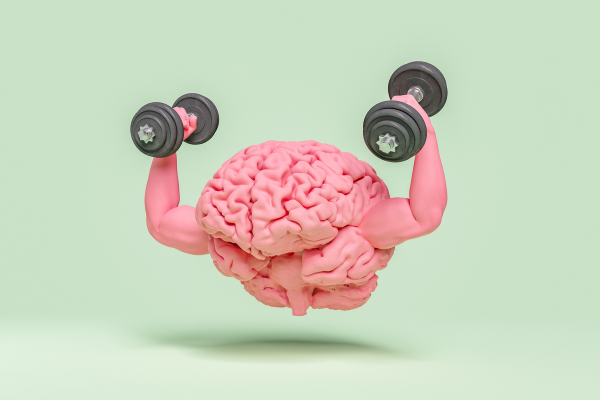The Connection Between Exercise and Brain Fitness: Be Healthy Now!

The connection between exercise and brain fitness is a fascinating topic that has gained significant attention in recent years. Exercise is not only essential for physical health but also has a positive impact on cognitive function and brain health.
Numerous studies have shown that regular exercise can improve memory, attention, processing speed, and executive function. Additionally, exercise has been linked to a reduced risk of developing dementia and Alzheimer's disease.
Moreover, exercise can have a positive effect on mood, stress management, and sleep quality, all of which can contribute to improved brain health. In this regard, incorporating exercise into our daily routines is a powerful tool for enhancing brain fitness and cognitive function. Here's what to know about the connection between exercise and brain fitness and how it can help improve our overall health.
What is Brain Fitness and How Does Exercise Affect Our Cognitive Performance?

Brain fitness refers to the ability to maintain optimal cognitive function and mental agility throughout our lifespan. It involves engaging in activities that challenge and stimulate the brain, such as learning a new skill, solving puzzles, and engaging in social interaction.
Exercise has been shown to have a positive impact on cognitive performance and brain fitness. Some ways that exercise can affect our cognitive function include the following:
- Improved blood flow that supports brain function
- Increased neuroplasticity which can improve learning and memory
- Reduced inflammation which has been linked to cognitive decline and an increased risk of dementia
- Improved mood can have a positive impact on cognitive function and overall brain health
- Increased brain-derived neurotrophic factor (BDNF), a protein that is important for the growth and survival of neurons and associated with better cognitive function
Incorporating regular exercise into our routine can have a positive impact on brain fitness and cognitive performance. A combination of aerobic exercise and strength training is particularly effective.
Aim for at least 30 minutes of moderate-intensity exercise most days of the week, and incorporate activities that challenge and stimulate the brain to support optimal brain health and function.
What are the Long-Term Benefits of Regular Exercise & Brain Fitness?
Regular exercise has numerous long-term benefits for both physical and mental health. Here are some of the benefits of brain fitness:
- Improved cognitive function including memory, attention, and processing speed as well as skills such as planning, decision-making, and problem-solving
- Reduced risk of dementia and improve brain function, increase the growth of new brain cells and decrease inflammation
- Improved mood and reduced symptoms of depression and anxiety
- Increased resilience to stress
- Improved sleep which can improve cognitive function, memory consolidation, and mood
What Kinds of Exercises are Best for Brain Fitness?

It's important to choose exercises that you enjoy and that challenges you at your current fitness level. Aim for a mix of aerobic exercise, strength training, and mind-body exercises, and incorporate activities that stimulate the brain, such as learning a new dance or sport.
Regular exercise, combined with a healthy diet and lifestyle habits, can support optimal brain health and function throughout your lifespan. Several types of exercises are particularly beneficial for brain fitness, including:
- Aerobic exercises such as brisk walking, jogging, cycling, or swimming
- Strength training such as weight lifting or bodyweight exercises
- Yoga or Tai Chi which involves controlled movements, breathing techniques, and meditation
- Dance which involves physical activity, coordination, and social interaction
- Sports such as tennis, basketball, or soccer, can improve physical fitness, coordination
Takeaway

Regular exercise can provide long-term benefits for brain fitness and cognitive health. Incorporating exercise into your daily routine can help improve your overall physical and mental health, and contribute to a better quality of life. No wonder the connection between exercise and brain fitness makes sense after all.
ActiveMan — Make Your Move
The Modern Guide to Men’s Health, Fitness & Lifestyle.





